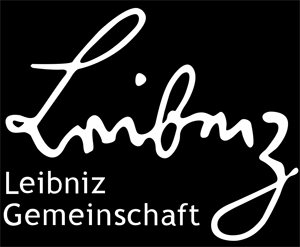Berlin’s non-university research institutions have launched a joint initiative to strengthen the capital’s role as an international science hub. Joining forces as the Berlin Research 50 (BR50), they want to develop research strategies and foster dialogue between science, politics and society. The initiative will also facilitate and reinforce cooperation with Berlin’s universities.
The new network includes almost all non-university institutes and centers in the Berlin metropolitan area. It is intended to facilitate coordination between non-university research institutions and to provide a central point of contact for cooperation with Berlin’s universities and for engagement with stakeholders in society and politics. Like the Berlin University Alliance (BUA) – the association of Freie Universität Berlin, Humboldt-Universität zu Berlin, Technische Universität Berlin, and Charité - Universitätsmedizin Berlin – BR50 will also provide a platform for the participating institutions to engage in ongoing dialogue.
The consortium includes representatives from all areas of scientific research. At the inaugural meeting held on February 18, 2020 at Max Liebermann Haus at the Brandenburg Gate, founding coordinators were chosen for the four sections: Prof. Dr. Thomas Sommer for Section 1 (Life Sciences), Prof. Dr. h.c. Jutta Allmendinger Ph.D. for Section 2 (Social Sciences and Humanities), Prof. Dr. Ulrich Panne for Section 3 (Natural Sciences) and Prof. Dr. Michael Hintermüller for Section 4 (Technology and Engineering).
“With their excellent research, these non-university institutions are already making an indispensable contribution to raising Berlin’s profile as a leading international science location,” says Thomas Sommer, founding coordinator of the Life Sciences Section and interim Scientific Director of the Max Delbrück Center for Molecular Medicine in the Helmholtz Association (MDC). “With BR50, we are now joining forces to help Berlin flourish as a research hub.”
Ulrich Panne, founding coordinator of the Natural Sciences Section and President of the Federal Institute for Materials Research and Testing (BAM), adds: “Dialogue between science, society and politics is becoming increasingly important, and BR50 will facilitate this by building many important bridges between Berlin’s research institutions.”
Jutta Allmendinger, founding coordinator of the Social Sciences and Humanities Section and President of the Berlin Social Science Center (WZB), also expects BR50 to strengthen cooperation between Berlin’s universities. “The large number and diversity of the city’s non-university research institutions is clearly one of Berlin’s strengths,” she says. “Our new association offers a central dialogue partner for Berlin’s universities, enabling us to initiate cutting-edge research projects together.”
For Michael Hintermüller, founding coordinator of the Technology and Engineering Section, as well as Director of the Weierstrass Institute for Applied Analysis and Stochastics (WIAS) and Executive Board Spokesperson of the Forschungsverbund Berlin, one of the main incentives behind the creation of BR50 is to address the great challenges that humanity is currently facing: “With this new association, Berlin’s research institutions can better utilize synergies in order to jointly develop solutions for the problems that lie ahead.”
FVB Managing Director Dr. Manuela Urban welcomes the establishment of the new alliance: “The level of density and diversity of Berlin’s non-university research institutions is truly unique. Acting as strong partners to Berlin’s universities, they have helped bring about outstanding research successes in recent decades. We are convinced that, by abandoning competition in favor of cooperation, Berlin has a chance to become a world-leading hub of research. The alliance of non-university research institutions established today seeks to help strengthen Berlin in international competition.”
At the inaugural meeting, an initial consortium of 41 of Berlin’s non-university research institutions came together, including institutes from major scientific organizations such as the Leibniz Association, the Max Planck Society, the Helmholtz Association and the Fraunhofer-Gesellschaft, as well as the federal government research institutes and the Prussian Cultural Heritage Foundation.
Press Contact
Dr. Harald Wilkoszewski
Head of Communications and Press Officer
Wissenschaftszentrum Berlin für Sozialforschung (WZB)
E-Mail
Tel. 030 25491-509
Jutta Kramm
Head of Communications
Max-Delbrück-Centrum für Molekulare Medizin
E-Mail
Tel. 030 9406-2140
Venio Quinque
Communication Department
Bundesanstalt für Materialforschung und -prüfung
E-Mail
Tel. 030 8104-1002
Anja Wirsing
Press Officer
Forschungsverbund Berlin e.V.
E-Mail
Tel. 030 6392-3337
![[Translate to English:] [Translate to English:]](/fileadmin/user_upload/Medienresonanz/2020_02_Initiative_BR_50.jpg)

